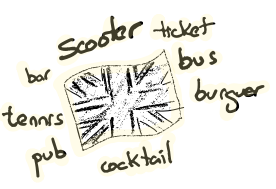
Italian - Plural

Basic rules
There’re a few rules to know how to construct plural in italian depending on the ending of the singular form. I’m probably missing some rule but in general we’ve got:
singular |
plural |
example |
-a |
-e |
amica → amice (friend f.) |
-o |
-i |
zaino → zaini (bagpack) |
-e |
-i |
stazione → stazioni (station) |
Here you have some examples following these rules:
singular |
plural |
meaning |
ospedale |
ospedali |
hospital |
cassa |
casse |
house/home |
matita |
matite |
pencil |
panino |
panini |
sandwich |
penna |
penne |
pastry |
pizza |
pizze |
pizza |
piazza |
piazze |
square |
povero |
poveri |
poor |
quaderno |
quaderni |
notebook |
sieda |
siede |
chair |
spiaggia |
spiaggie |
beach |
Foreign words
In general foreign words are the same in both singular and plural.

Adding h
Finally there’re some exceptions to the basic rules. These exceptions try to keep the sonority that the singular form had.
singular |
plural |
example |
-ca |
-che |
amica → amiche |
-ga |
-ghe |
ruga → rughe |
When ending with -go depends. If it’s related to a person the the plural ends with gi as in biologo → biologi:
singular |
plural |
example |
-go |
-gui |
albergo → alberghi |
-go |
-gi |
biologo → biologi |
The same goes with -co. Depending on whether the letter before co is a vowel or a consonant, the plural will be different.
singular |
plural |
example |
-[vowel]co |
chi |
parco → parchi |
-[conso]co |
ci |
medico → medici |
Must-know exceptions
Finally there’re some must-know exceptions worth learning:
singular |
plural |
meaning |
uomo |
uomini |
man |
dito |
dita |
finger |
uovo |
uova |
egg |
braccio |
braccia |
arm |